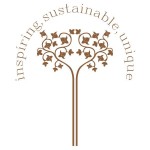

The expansion of cultural tourism over recent decades has played a crucial role in the promotion and the protection of tangible and intangible heritage. Lithuania and Latvia are known for the countries‘ cultural heritage objects (especially mansions), little altered natural surroundings, resorts tradition, and many other things.
Both countries have a huge interest in ecotourism and in emphazising the need to protect cultural objects and to efficiently use regional heritage for benefits of both countries.
The project „Joint eco-sign for Lithuania’s-Latvia’s restaurants and hotels in cultural objects“ started in April 2017 and will come to an end in January 2019. The main objective is to increase the number of visitors to cultural heritage sites in Lithuania-Latvia by the creation of a new eco-sign for restaurants and hotels in those areas.
The main project output would be Sustainable Tourism. It will in the long-run:
- Contribute to increasing the number of tourists and their visit duration to eco-sign hotels and restaurants;
- The newly introduced eco-sign will raise the standards for restaurants and hotels in the cultural heritage area who will have to adapt “green technologies” and to comply with strict other environmental requirements;
- Promote the protection of heritage objects;
- Promote local culture and products;
- Will in different ways benefit the hotel and restaurant consumers, and
- Undoubtedly increase the countries’ competitive advantage.
During the project new and joint eco-sign will be created and implemented. This project is unique in worldwide, because of its focus on cultural heritage objects. New Eco-labeling system represents 11 aspects of sustainable business, 128 evaluation criteria, of which 42 are mandatory. There are 20 project partners involved, from the most beautiful, and state protected buildings in Latvia and Lithuania. All of them operate as accommodation or/and restaurant businesses.
To become eco sign attributed property, hospitaly business, located in heritage objects, fills the application form
and signs a contract with a basic commitment.
The system consists of 126 criteria divided in 11 Aspects of sustainability.
42 of the criteria are mandatory and hence a pre-requisite for being able to participate. All mandatory criteria must be met to achieve the certificate.
The system currently has a three year continuous improvement rule.
Businesses must meet two additional supplementary criteria each year. Year two the business performs a new assessment and in addition at least one supplementary criteria per aspect is to be met. Year three the business performs a new assessment and now in two more supplementary criteria per aspect are to be met.
The system is built on self-auditing with a demand to openly display the result.
Once a business meets all mandatory criteria (year one) and after the check on site it can freely use the logotype.
To get aware of sustainability principles read educational presentation
To read project broschure to make You an exciting heritage journey towards the sustainable future here
To find hints to Baltic cultural heritage trails here and detailed description of cultural heritage trails
More information – Eglė Ližaitytė info@lvra.lt, 8 686 51148
Project „Joint eco sign for Lithuania‘s and Latvia‘s restaurants and hotels in cultural objects“, Nr. LLI-064 (JESLL). The project is carried out according to the Interreg V-A Latvia – Lithuania Programme 2014-2020 to contribute to the sustainable and cohesive socio-economic development of the Programme regions by helping to make them competitive and attractive for living, working and visiting. The amount of project ERDF support is EUR 43437.27. The total budget is EUR 51102.67. Leading partner- Lithuanian Hotel and Restaurant Association, Project Partner – Latvian Hotel and Restaurant Association.
This press release has been produced with the financial assistance of the European Union. The content of this press release is the sole responsibility of Lithuanian Hotel and Restaurant Association and can under no circumstances be regarded as reflecting the position of the European Union.
Programme website: www.latlit.eu
Official EU website: www.europa.eu
